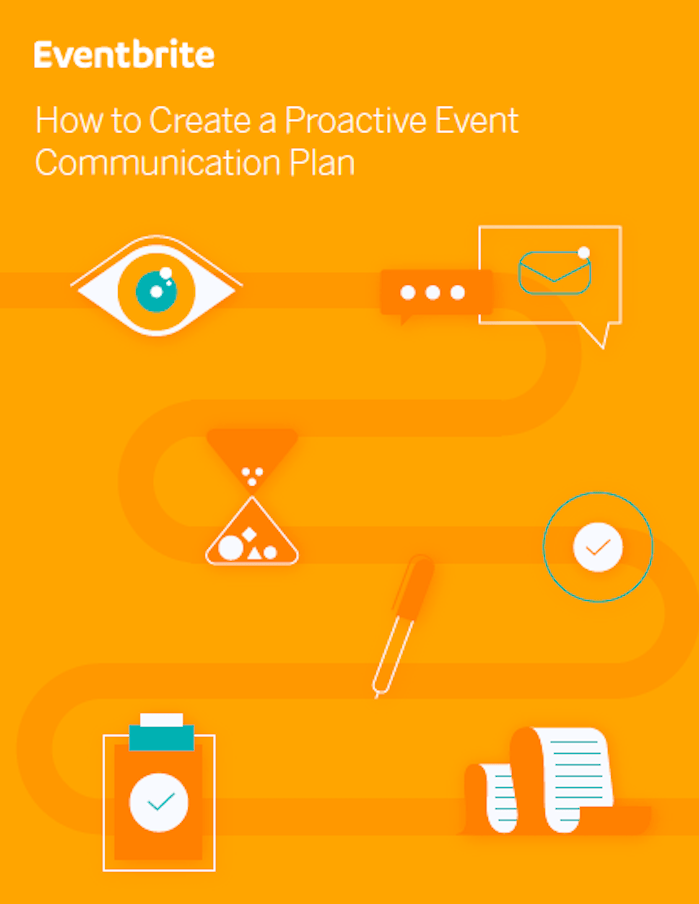Your event’s reputation is built on the quality of the experience you deliver. Sometimes no matter how much preparation goes into an event, the reality differs significantly from the vision you sold, especially if you’re faced with troubles like relentless rainstorms, horrific bathroom situations, or excessive lines. When disaster strikes — preventable or otherwise — you’d better be armed with a strong communication plan to address your attendees.
Download the guide: How to Create a Proactive Communication Plan
Event dramas are a pain point every event manager deals with at some stage of their career, but the best organisers build a communication plan that carries them through (almost) any situation. Here’s a breakdown of how to build your proactive communication plan — and why you and your attendees will be grateful you have it.
Building your proactive communication plan
Ongoing strategic communication is at the heart of launching and scaling successful events. While you can’t guarantee that everything will go exactly to plan at your event, you need to be prepared to communicate eloquently and effectively with your attendees. These are the five main points to building your proactive communication plan:
1. Identify potential issues
Poor ticket sales, performer or vendor drop-outs, weather, and traffic/transportation issues might all be on your list. Identify your biggest potential risks by looking at past events and drawing on the experiences of your team.
Read More: 10 Common Event Disasters and How to Address Them
2. Work ahead
Create canned email and social media messages in advance so you’re not starting with a blank page. Simply tailor the message to the specific situation, and hit send faster.
3. Think about delivery
Decide who should address the issue for each potential mishap. Does the CEO need to make a statement? Someone from the public relations team? When? What channels should you use?
4. Draft your responses
Have a process in mind for responding to attendees’ posts on social media. You’ll likely get lots of questions and comments, so be prepared on how you want to answer and address them consistently.
Read More: How to Avoid Social Media Backlash
5. Plan to communicate early and often
Silence is deafening and often the gap you leave by saying nothing will be filled by speculation, ridiculous rumours, and attendee dissatisfaction. Even if you don’t have all the answers, reassure people that you hear them, you’re working on it, and always stay true to your promises. In short, do what you say you will.
The payoff of proactive event communications
In a competitive market, your festival may not survive if you attract attendees with marketing that sells more than you deliver — and then let them down with the experience onsite.
“What makes or breaks an event experience is having a deep understanding of the community you’re creating — and being intentional about it,” says Tommy Goodwin, Eventbrite’s director of global field services. “Because you are creating a community. I don’t think every event organiser thinks about it that way, but the good ones do. And for the best ones, that’s their goal.”
With the right communication strategy in place, you can better deliver the event experience your attendees crave — and expect. Communicating with your attendees about event logistics is just as important as keeping them informed with something unexpected happens. Having the right strategy in place will help you keep cool and manage your attendees’ expectations.
Check out How to Create a Proactive Communication Plan to save time during a predicament and provide above-and-beyond customer service.






